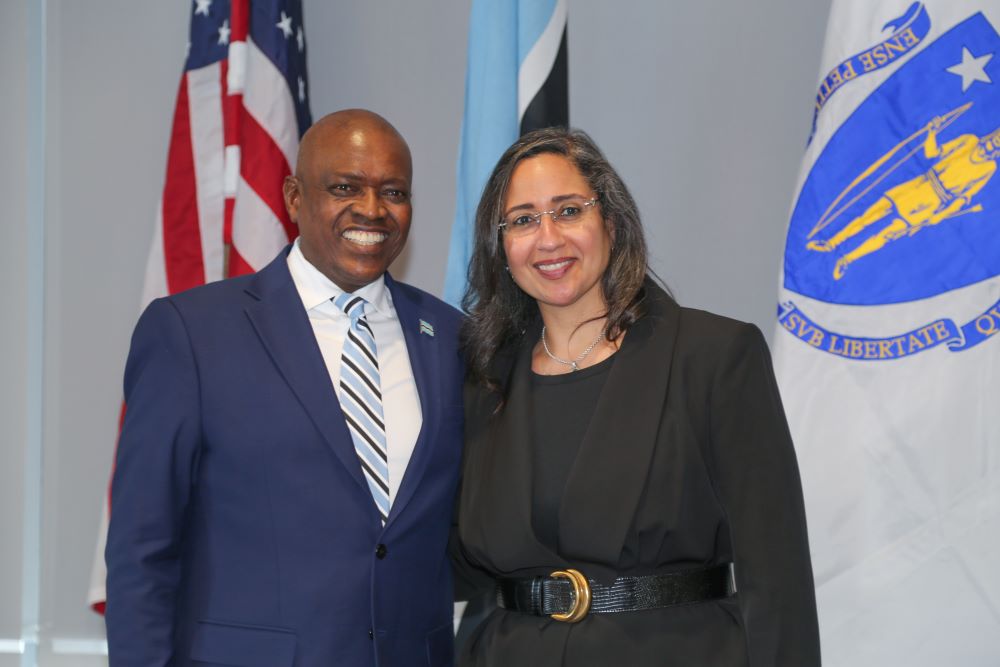The Legatum Center for Development and Entrepreneurship at the Massachusetts Institute of Technology (MIT) has revealed its 15-Year Impact Report at the “Innovation in Global Growth Markets: Prosperity Through Entrepreneurship” Conference in Cambridge, Massachusetts.
At the same event, where it marked more than 15 years of fostering innovation and entrepreneurship, the centre reaffirmed its dedication to advancing innovation throughout Africa by formalizing a commitment through a Memorandum of Understanding (MOU) with the Republic of Botswana.
“The Legatum Center has showcased the transformative power of entrepreneurship in growth markets since its establishment in 2007,” said Executive Director Dina H. Sherif. “As we celebrate over 15 years of driving prosperity across Africa, we’re now committed to deepening our work with a focus on DeepTech innovation as the next frontier for the continent’s future. We’re honored to partner with Botswana in charting a path towards realizing this vision.”
President Dr. Mokgweetsi EK Masisi of Botswana delivered a keynote speech at the conference, emphasizing the pivotal role entrepreneurship can play in driving prosperity for emerging economies. He went on to emphasize the potential for collaboration with the Legatum Center to cultivate a culture of innovation and entrepreneurship within Botswana.
“We deeply recognize the vital work undertaken by the Legatum Center for Development and Entrepreneurship,” President Masisi remarked. “Diversifying our economy and transitioning to a knowledge-based one driven by science and innovation is anchored in our Vision 2036 and is one of my government’s top priorities.” He further expressed Botswana’s eagerness for deeper collaboration with the Center and MIT to make this a reality.
Masisi added that for Africa to realize its full potential it would “need a surge of innovation and a wave of entrepreneurs who can translate ideas into scalable solutions”. The Legatum Center’s 15-year impact report highlights and showcases the groundbreaking work of fellows leading the way toward this very goal.
In Kenya, Joyce Kamade (Foundry Fellow 2023) and Kevin Kung (Student Fellow 2015) joined forces to establish Safi Organics with the aim of alleviating poverty among rural farmers. To date, Safi Organics has generated 600 employment opportunities and positively influenced over 10,000 impoverished farmers, boosting their incomes by 50% and increasing yields by 30%. Caitlin Dolkart (Legatum Student Fellow 2016) co-founded Flare, a platform dedicated to improving emergency medical care in underserved areas by providing a centralized network of ambulances, resulting in faster and safer access to critical services. Today, Flare leads emergency services in Kenya, serving 2 million customers with response times ten times faster than previous.
In Libya, Mohamed Aburawi (Student Fellow ‘21) established Speetar, an AI-enabled telemedicine platform aimed at addressing the pressing need for accessible and affordable healthcare in conflict-affected communities. Speetar has already catered to nearly 2,000,000 users, making a significant impact in these regions.
In Nigeria, MDaaS Global is revolutionizing healthcare delivery in clinically underserved African communities through modern, technology-enabled solutions. Currently serving over 260,000 patients and partnering with 1,300 clinical facilities across 25 Nigerian cities, MDaaS Global is making healthcare more accessible and efficient.
These entrepreneurs are part of the Legatum Center’s fellowship programs. The student fellowship, which boasts 69 alumni, focuses on nurturing ventures in Africa, with 29 ventures still thriving today. The Foundry Fellowship, launched in 2021, supports established African entrepreneurs committed to accelerating and connecting Africa’s innovation and entrepreneurship ecosystems. The program includes mentorship, leadership training, and experiential tours of innovation ecosystems, empowering entrepreneurs to advance their ventures and leadership capabilities.
In addition to recognizing the impact of these fellowship programs, the report highlights 244 entrepreneurs in Africa who have completed shorter-term Deep Tech boot camps and accelerator programs offered by the Center’s team in collaboration with innovation ecosystem stakeholders and MIT faculty across several African countries.
A major goal of the Center for the Future is to develop its engaged community of entrepreneurs and ecosystem leaders who, together, will create new markets, strengthen ecosystems, and build the economies of the future. “The majority of the world’s growth now comes from what has historically been referred to as the developing world. It is time for us to start recognizing that our time is now. We are not rising. We are here, we are strong, and it is up to us to create the prosperity that we need”, Sherif concluded.





